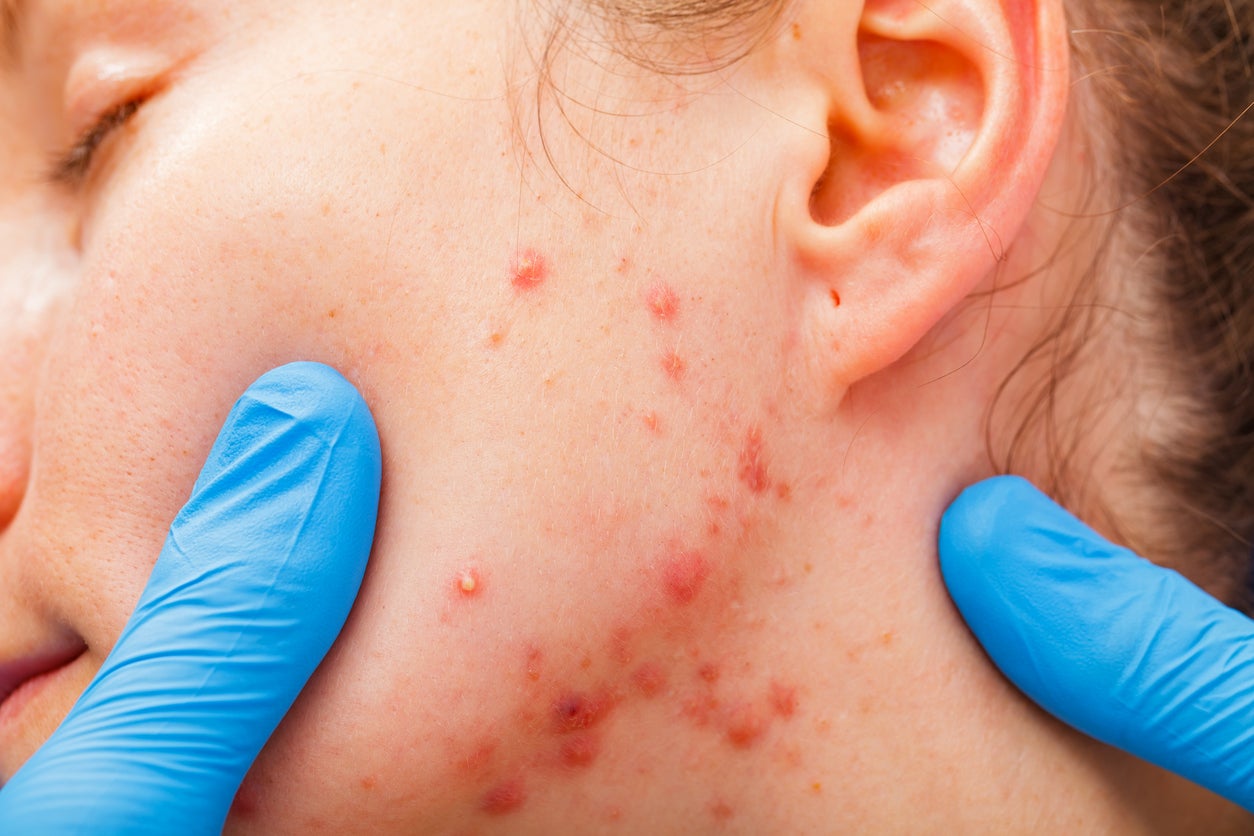What is hormonal acne and how do you treat it?
Don't suffer unnecessarily - acne is entirely treatable

Whilst it’s often thought of as merely a teenage problem, acne can strike at any age.
In your teens, acne usually rears its head on the T-zone, whereas adult acne generally manifests more across the cheeks and jawline.
Whichever type of acne you may suffer from though, it can have a debilitating effect on your self-esteem. After all, you can’t hide your face.
In fact, a recent study by the British Association of Dermatologists found that 54 per cent of British adults who have ever experienced acne feel that it has had a negative impact on their self-confidence.
John Anastasiou, President and CEO of Frezyderm, said: “As a condition which has an impact on how we look, acne can have a big emotional toll.
“If we are unhappy with our appearance then this can often spill into other areas of our lives, for example the 19 per cent of those who’ve ever had acne who felt that their acne had negatively affected their romantic relationships.”
Their research found that 48 per cent of people report having acne at some point in their lives, and 19 per cent have had it over the age of 25.
Many people claim that they get spots after eating too much chocolate or greasy food, but acne is actually caused by our hormones.
“Fundamentally, all acne is hormonal,” consultant dermatologist at Skin55 and author of The Skincare Bible, Dr. Anjali Mahto told Refinery29.
“Skin concerns can often be attributed to hormonal changes that take place during the course of one’s life, and there are certain periods, namely puberty, pregnancy and the menopause, where this holds particularly true. Hormones can wreak havoc on the skin in a rather unpredictable manner during these times.”
Retinol Skincare
Show all 10How this works is hormones known as androgens (such as testosterone) increase the production of sebum which can lead to pore-blocking and thus spots.
The sebaceous glands of people who get acne are particularly sensitive to normal blood levels of certain hormones, which cause the glands to produce an excess of oil. At the same time, the dead skin cells lining the pores are not shed properly and clog up the follicles.
Everyone has acne bacteria, but it’s only in certain unfortunate people that the build-up of oil creates an ideal environment in which these bacteria can multiply. This triggers inflammation and the formation of red or pus-filled spots.
Dr Mahto says that around two-thirds of women who suffer from acne will notice it worsening in the run-up to their periods because their androgen levels are higher at this time.
There’s no one way acne can appear either - it might be red cysts, pus-filled spots (pustules) blackheads or whiteheads (together known as comedones).
When it comes to treating acne, there are various different approaches you can try, and what works for one person may not work for another.
If you have severe acne, over-the-counter treatments are unlikely to be sufficient so you need to go and see a GP who may refer you to a dermatologist.
Of the prescribed treatments, there are three main options: antibiotics, hormone therapy and roaccutane.
Antibiotics
Whether a topical cream/ointment or a tablet you take on a daily basis, taking antibiotics should kill the bacteria associated with inflamed acne.
Antibiotics are also often combined with other treatments options such as retinoids or benzoyl peroxide.
Common oral antibiotics for acne include tetracycline, oxytetracycline, doxycycline and lymecycline. Common topical antibiotics for acne include clindamycin and erythromycin.
Hormone therapy
Hormone therapy is a treatment option offered to women and girls who have started their periods - the most common way to take it is through the combined contraceptive pill. Certain forms of the pill, such as Yasmin and Dianette, are thought to be better for combatting acne, however your doctor may advise not taking them for more than nine months due to increased risk of blood clots.
By taking the pill, you can reduce the amount of hormones in the body that are associated with causing acne ie. reducing testosterone and possibly increasing oestrogen, which encourages the skin’s oil glands to produce less sebum.
However as with anyone taking the contraceptive pill, side effects can include swelling, tenderness, mood changes, reduced libido and nausea.
Roaccutane
Also called isotretinoin, roaccutane is often seen as a last port of call when less severe acne treatments haven’t worked. It can only be prescribed by a dermatologist in the UK but is highly effective.
Roaccutane stops the sebaceous glands producing so much oil and increases the shedding of dead skin cells, however this can lead to dry, cracked skin as a side effect while undergoing treatment.
Not all patients need to take a heavy dose though and most find that after six months of treatment their acne has cleared up and doesn’t come back.
If you are interested in treating your acne, see the Acne Support website and make an appointment with your GP
Subscribe to Independent Premium to bookmark this article
Want to bookmark your favourite articles and stories to read or reference later? Start your Independent Premium subscription today.

Join our commenting forum
Join thought-provoking conversations, follow other Independent readers and see their replies